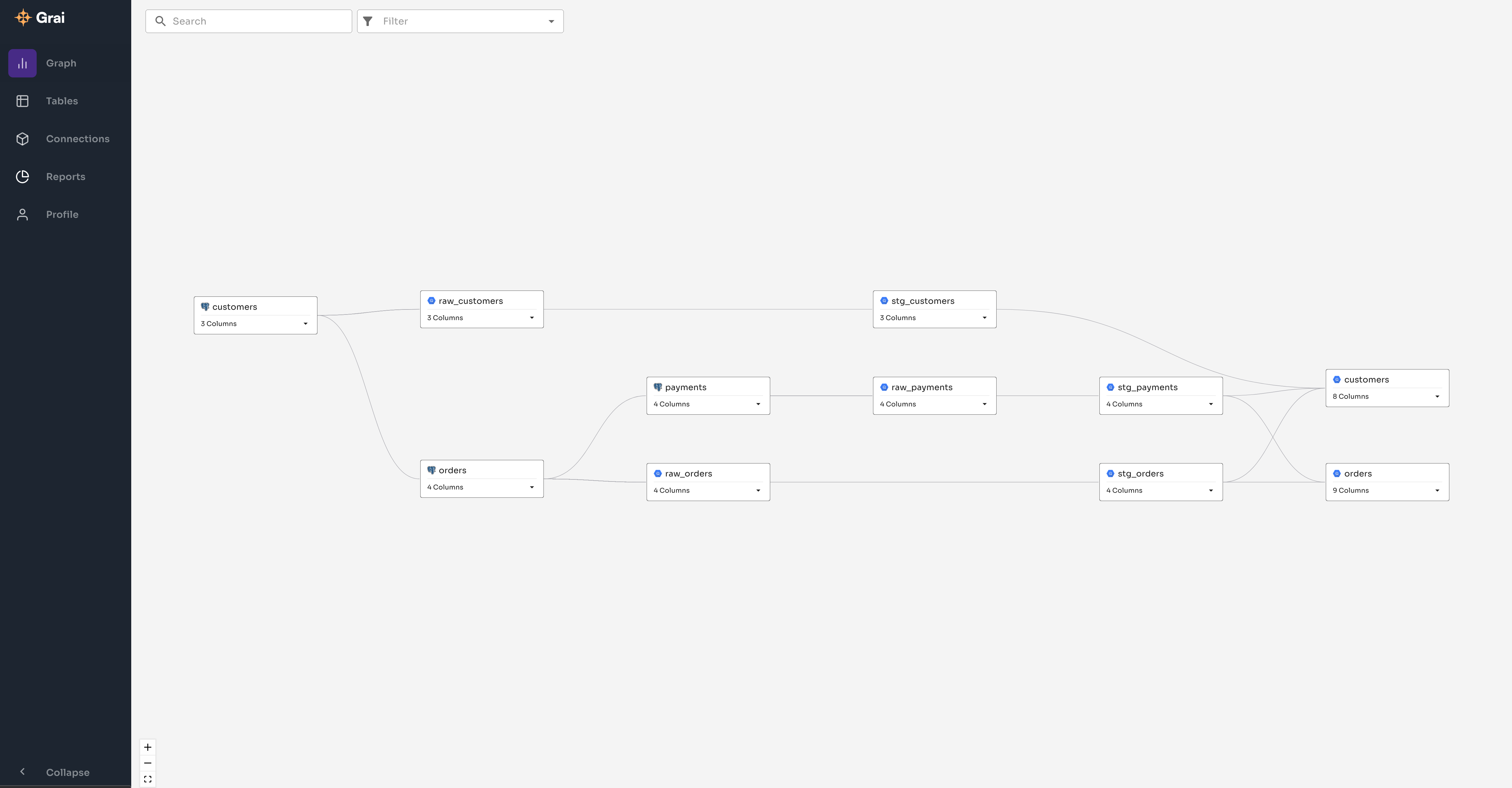Data lineage made simple. Grai makes it easy to understand and test how your data relates across databases, warehouses, APIs and dashboards.
- Pre-built connectors. Automatically synchronize lineage from across the stack so your metadata is never out of date.
- Centralized data tests. Write data validation tests which run whenever upstream data sources change.
- Integrated with GitHub. Run data validation tasks as part of your CI/CD process to test changes everywhere your data is used.
- Your data, your cloud. Grai is fully open sourced and self hosted. You maintain full control over your data and hosting environment.
- Automatically build column level lineage spanning your warehouse and production services with connectors for
dbt,Snowflake,Fivetranand more (see below). - Get alerts in your CI/CD workflows whenever changes to a production system will impact your warehouse or dbt projects with GitHub Actions.
- Self host the project or run it in the Grai Cloud for free.
We currently support pre-built integrations for a variety of sources including
You can find a full quickstart guide in the documentation which covers deploying your own instance of Grai and getting set up with your first connector in python.
You can always find pre-built images of the backend server at ghcr.io/grai-io/grai-core/grai-server:latest and the frontend at ghcr.io/grai-io/grai-core/grai-frontend:latest, however, if you prefer to build from source, you can do so with docker compose.
git clone https://github.com/grai-io/grai-core
cp examples/deployment/docker-compose/docker-compose.yml
docker compose up
The backend server will be available at http://localhost:8000/ and the frontend is now here http://localhost:3000/.
Default login credentials:
username: null@grai.io
password: super_secret
After logging in and connecting a data source you'll be greeted with a lineage graph looking something like this
For more information about using the web application check out the getting started guide.
You can find example configurations for docker compose and Kubernetes in the examples folder.
We also publish a set of Helm charts which are available if you prefer.
helm repo add grai https://charts.grai.io
helm install grai grai/grai
Programmatically interact with your data lineage from the command line using the grai-cli. Although we strongly encourage using something like pipx, for installing the cli it's otherwise as simple as
pip install grai-cli
After installation you can invoke the CLI with the command grai. The first time you run the CLI you should be greeted with installation instructions, but you can always rerun them with the command grai config init.
The client library provides programmatic access to the data lineage server. You can use the client library for any programmatic functionality you want to add on top of the core Grai installation.
pip install grai-client
To work with the client, learn more here.
Email us: founders@grai.io
Check us out at www.grai.io
Sign up for our Newsletter Grai Matters email list.


